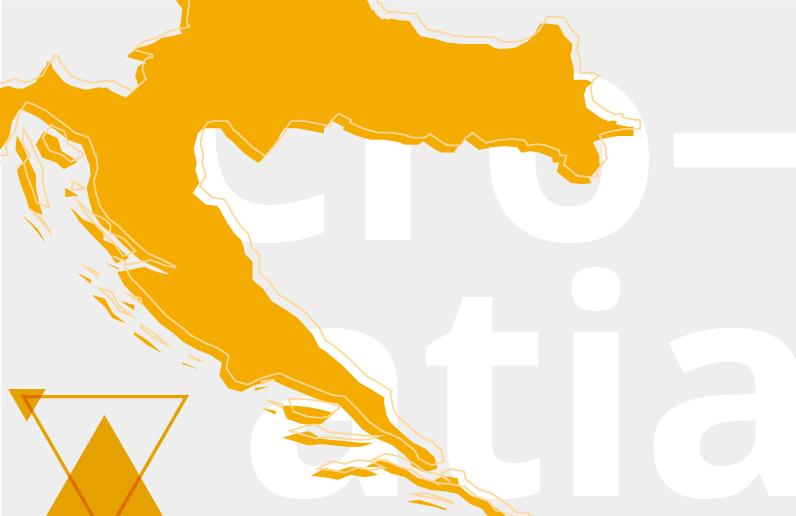EMBO Young Investigator Network biannual retreat
5 July 2024 – More than 50 members of the international EMBO Young Investigator Network recently gathered at the Mediterranean Institute for Life Sciences…
Facts and figures, life scientists in Croatia, EMBO opportunities
5 July 2024 – More than 50 members of the international EMBO Young Investigator Network recently gathered at the Mediterranean Institute for Life Sciences…
Kristian Vlahovicek, professor at the University of Zagreb, Croatia, and former EMBO Installation Grantee, talks about the impact of international cooperation on his work
Iva Tolić, EMBO Member and professor at the Ruđer Bošković Institute, Zagreb, Croatia, talks about her passion for science and research
Marko Šestan, Assistant professor at the University of Rijeka, Croatia, and former EMBO Postdoctoral Fellow, talks about his research goals and how he was supported…



Croatia has been an EMBC Member State since 1998.
There is a long and rich tradition of learning and education in Croatia. The country hosts a total of 133 higher education institutions including eight public universities8. The first university was founded in 1396 in Zadar8; the largest, and oldest currently active university, with over 70,000 students, is the University of Zagreb, founded in 16699. The largest scientific and research institution, the Ruđer Bošković Institute (RBI) in Zagreb, was founded in 19506.
Many higher education institutions offer degree and postgraduate programmes in English8. Tuition fees vary depending on length of study, type of programme and institution, but waivers and scholarships, for example via exchange programmes such as Erasmus+, are available for international students10.
Although steadily increasing, at 0.72% of GDP (2021), investment in research and development in Croatia is relatively low2. This combined with gaps in innovation and technology adoption, and weaknesses in managerial and organizational practices puts constraints on competitiveness11. The situation is recognized by both the Croatian government and stakeholders abroad, and several initiatives have been established to help the Croatian government reform the research system. For example, the Croatian ministries and the World Bank collaborate to ensure more effective use of EU funding and better management of opportunities12. In 2023, the World Bank invested 106 million euros in digital, innovative and green technology13. The Croatian government is implementing new policies as part of its 2018−2030 National Development Strategy and 2021–2029 Smart Specialisation Strategy to remedy previous gaps in funding opportunities14. The Croatian Science Foundation, which in 2021 distributed 228.8 million HRK, its highest level of funding yet13, is also expected to take on a significant role in helping to reform the country’s research system15.
Croatia enjoys the second highest average of sunshine hours in Europe16. The country is characterized by its areas of natural beauty and extensive coastline. It has eight national parks with a total area of more than 87,000 km2, as well as 1,800 km coastline and more than 1,200 islands14.
Population: 3.9 million1
R&D spending: 0.72% of GDP2
Patents: 32 applications filed in 2022 with the European Patent Office3, 130 patent applications submitted in 2022 to the State Intellectual Property Office4
Researchers: 16,8795
Universities: eight public universities, one private6
Number of universities: 84 (50 under public law)1
Horizon 2020 funding:
538 projects totalling 137.8 million euros7
Six ERC-funded investigators7
All life scientists in Croatia are eligible for the EMBO Programmes supporting life scientists in Europe and beyond.
Find out about all EMBO funding schemes here.
All information as of August 2023.
5 July 2024 – More than 50 members of the international EMBO Young Investigator Network recently gathered at the Mediterranean Institute for Life Sciences…
Kristian Vlahovicek, professor at the University of Zagreb, Croatia, and former EMBO Installation Grantee, talks about the impact of international cooperation on his work
Iva Tolić, EMBO Member and professor at the Ruđer Bošković Institute, Zagreb, Croatia, talks about her passion for science and research
Marko Šestan, Assistant professor at the University of Rijeka, Croatia, and former EMBO Postdoctoral Fellow, talks about his research goals and how he was supported…